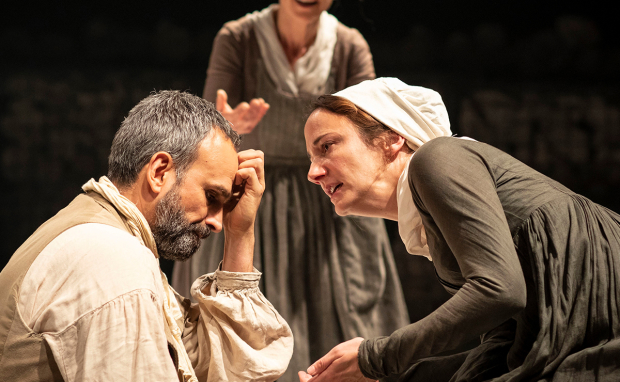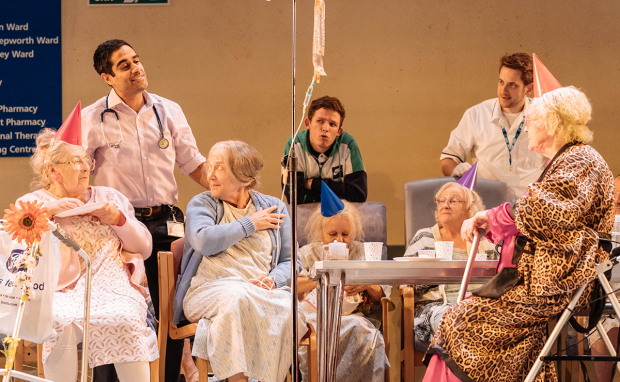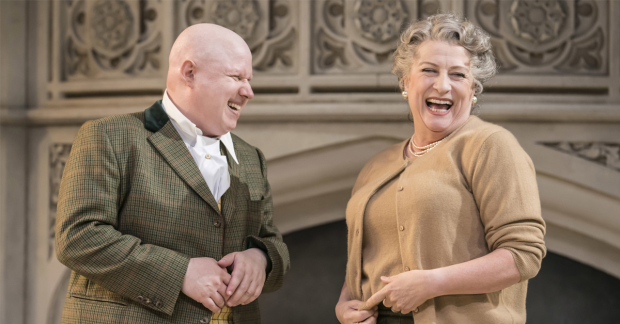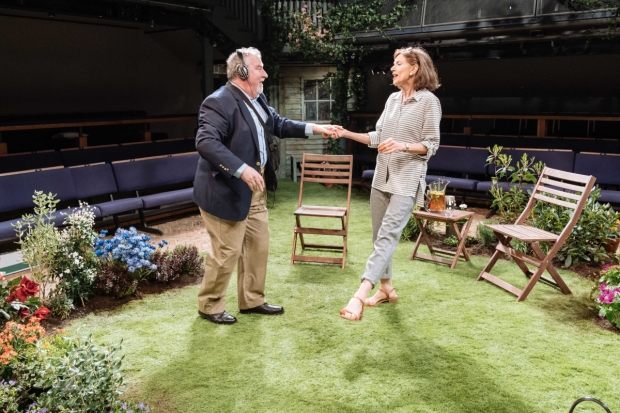Review: The Meeting (Chichester Festival Theatre)
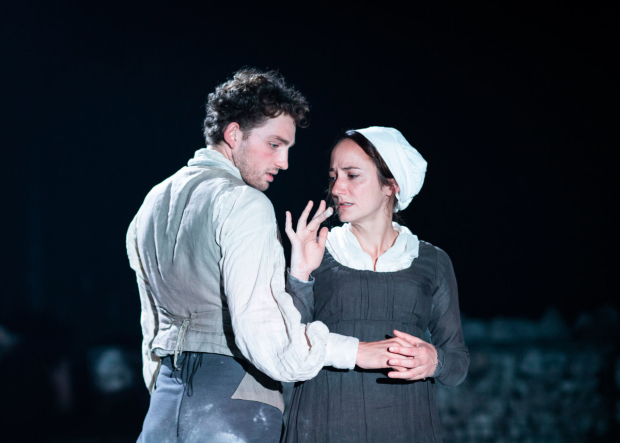
© Helen Maybanks
The Meeting may be Charlotte Jones' first play in many years, but she hasn't been idle. The writer of 2001's multi award-winning family comedy Humble Boy has been working in TV and film. She has also, for five years, been attending a Quaker meeting in the Sussex town of Lewes, taking her place in the circle of stillness and making her own exploration into the four 'testimonies' of peace, equality, truth and simplicity.
The truth Jones found in the silence had something to do with stage drama. Premiering as part of Chichester Festival's 2018 programme, her new play is about finding one's place and voice in the world, a late-redeemed domestic tragedy with the Napoleonic wars as backdrop. It starts with the cast immersed in a silent Quaker meeting, suspended in a ring of light. By the middle of act two, everybody is shouting at each other, the circle symbolically eclipsed by criss-crossing lines of angry dialogue.
The catalyst for this outbreak of interpersonal unrest is Rachel (Lydia Leonard), a Quaker by marriage to a stonemason. This role is in tension with her born identity as the voice for her deaf mother, Alice (Deaf actress Jean St Clair). At meetings, she finds it impossible to forbear from speech. We know, from the play's opening moments, that Rachel is prone to straying from the given path: she tells her mother where she has been with a lyrical snaking of her hand.
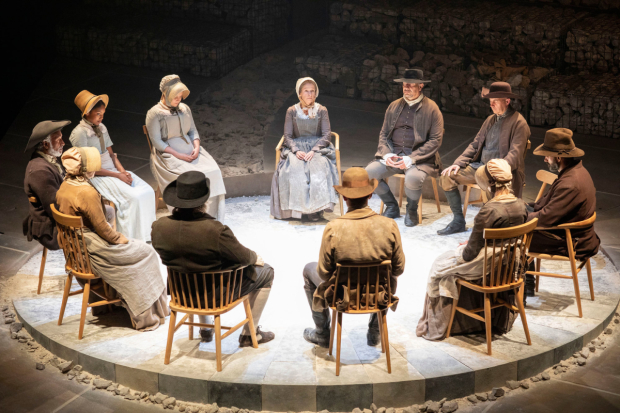
© Helen Maybanks
Rachel questions whether the Quaker's silence is one of productive contemplation or false refuge. There is no room for her truth, her darkness, in the circle of light. She walks, we gradually learn, to visit the graves of her three stillborn sons. On one of these walks she encounters a young solider who quakes with PTSD, and smuggles him into the community as apprentice to her husband.
The Quaker setting nurtures Jones' themes. But in this flawed production from director Natalie Abrahami, it doesn't have enough grip on atmosphere or aesthetic. The direction lacks space and depth, even in the scenes conducted in BSL. The simple, stone-based design is confused by a cold mechanical centrepiece: a ring of metal descends on the circle of wooden chairs like the pin setter in a bowling alley, accompanied by the clicking and ticking of a thoroughly modern soundtrack.
Leonard is compelling, capturing the barely-restrained passion and intelligence of Rachel. Barren yet overburdened with language, she has some powerfully emotive lines. 'I want to wake to a cry, to a tug to my heart' she says, remembering the red ribbon that linked her wrist to that of her sleeping mother as a baby.
But, for a play that questions when language can deliver us, and when it may get in the way of truth, the production is far too bound to the spoken word. In particular, Abrahami misses the complexity in Rachel's attraction to the young soldier. His red coat is a flash of virile passion amid the pale stones, but it also recalls the ribbon linking mother and baby. When Rachel hides the coat in the sewing box that was to be her babies' cradle, Jones suggests a fascinating confusion of the maternal and the erotic that sadly goes underexplored.



